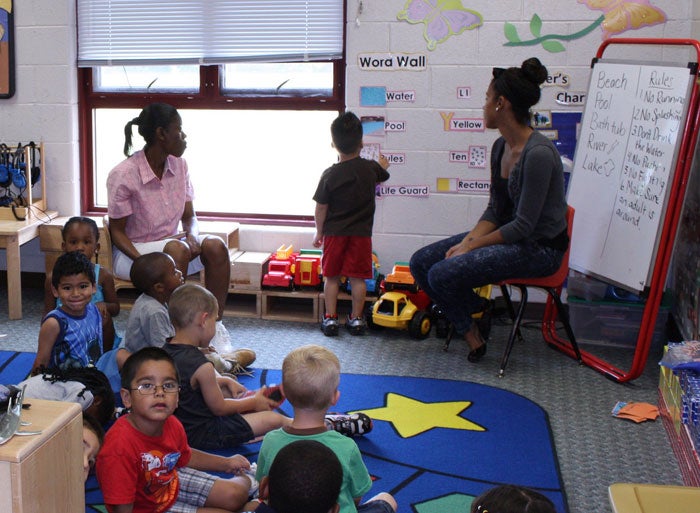This year marks the 50th anniversary of President Lyndon Johnson’s War on Poverty, a remarkable package of legislation designed to reduce the number of American families living on very little. One lasting legacy of the initiative was the creation of Head Start, a federal antipoverty program to promote early school success for low-income, preschool-aged children in the hopes of reducing social disparities over time. Head Start is currently the nation’s largest federally funded preschool program, and it serves more than one million low-income children each year.
Head Start was designed to improve child and parent outcomes and promote family wellbeing over the life course. From its inception, Head Start did more than just provide early childhood education and services. The program also sought to engage parents in their children’s schooling, enhance their childrearing skills, and support parents’ own educational progress. Today, the program provides a host of services to parents, including GED coursework, family support services, and opportunities for leadership within Head Start’s early childhood education programs.
In 1998, Congress mandated the Head Start Impact Study, which resulted in the most ambitious national evaluation of the program to date. The Head Start Impact Study follows 4,000 3- and 4-year-old children newly entering preschool who were randomly assigned to either Head Start or to a control group through third grade. Findings from the main study indicated that Head Start had less of an impact on the academic and social development of children than expected. Although participating in Head Start led to short-term improvements in development, these were no longer evident by kindergarten.
The results from the Head Start Impact Study led to a flurry of media claims that the program may not lead to long-term outcomes. As one Wall Street Journal article editorialized, “Head Start’s impact is no better than random.” This negative interpretation of Head Start has been fiercely debated, with recent evidence suggesting that the program did more for some children than others.
As the debate rages over the power of Head Start to change outcomes for the children in the program, we wanted to find out whether children’s participation in Head Start encouraged parents to advance their own education and employment. We took advantage of the randomized design from the Head Start Impact Study to examine this hypothesis using the full sample of 3- and 4-year-old children who had data on their primary caregiver (most often mothers, but also a small portion of fathers). Our main research question was whether Head Start led parents to increase their education or employment from the start of preschool through first grade and the extent to which findings were stronger for certain demographic subgroups.
African American parents of students in Head Start were most likely to see an increase in their education as a result of participation in the program.
We found that parents of the 3-year-olds in the study had steeper increases in their own educational attainment than parents of the control-group children by the time the children reached kindergarten. There were no effects on parent employment among the 4-year-old cohort.
We also found interesting subgroup patterns when analyzing data from the Head Start Impact Study. African American parents of students in the program were most likely to see an increase in their education as a result of participation in Head Start. We also found that parents who had at least some college experience but no degree benefited most from Head Start in terms of education. That suggests that Head Start is particularly helpful for families who have the motivation to improve their education but may need extra support.
This study is one of the first of its kind to demonstrate positive impacts of Head Start for parents’ education. To us, this suggests that Head Start may provide the ideal place to promote parents’ education by offering:
- high quality early education for children that allows parents to pursue their own academic or career interests;
- a network of parents and staff to support their success; and
- information and access to postsecondary educational opportunities.
Parents with young children in Head Start are very motivated to expand their children’s life chances as evidenced by their enrollment in the programs’ early childhood education services. However, much more work needs to be done to explore whether and how mutual motivation between parents and children operates within early education programs. Our findings highlight the great potential for Head Start programs to support parents’ own educational opportunities through explicit two-generation programming that simultaneously seeks to improve parent and child human capital.
Head Start and Early Head Start have historically been significant platforms for supporting children’s learning and their parents’ engagement in their learning. Explicit two-generation programs that use early childhood education as a platform to boost parents’ education and career training advancement may have the potential to increase the wellbeing of both parents and children. There is still much disagreement on whether the War on Poverty was won or lost. For Head Start, these findings suggest that — more than simply preparing poor children for school — the program may also give parents tools for lifting their families out of poverty. Further research may show this is an alternative pathway to reduce social disparity from one generation to the next.


